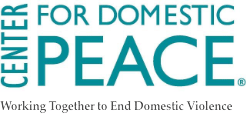Sex Trafficking
Our doors are open for sex trafficking survivors. Trafficking survivors need the same kind of holistic services that domestic violence survivors need.
Services we provide:
- Safety planning
- Crisis management
- Information
- Shelter/housing
- Legal services (Immigration, Criminal Justice, Family Law)
- Interpretation
- Trauma-informed counseling
- Referrals for medical care
- Life skills
- Financial assistance
- Access to public benefits
- Referrals for job readiness/employment
- Family reunification
- Repatriation
What is sex trafficking?
Sex trafficking is the exploitation of women and children for the purposes of forced sex work. Commercial sexual exploitation includes pornography, prostitution, and sex trafficking and is characterized by the exploitation of a human being in exchange for goods or money. Under federal law, any minor under the age of 18 induced into commercial sex is a victim of sex trafficking.
What is the intersection between domestic violence and sex trafficking?
Sex trafficking is often an extreme form of domestic violence in which traffickers are pimps and batterers rolled into one. Here are some examples of domestic violence disguised as trafficking:
- Many traffickers are intimate partners.
- Pimps are boyfriends and lovers.
- Internet brides – 9,500 to 14,500 brought into USA each year.
Intimate partner traffickers maintain control through a mixture of rewards and punishments. Often, gifts and declarations of love are followed by verbal abuse and beatings, hence the pattern of abuse. Types of abuse are similar to what domestic violence victims experience, and include:
- Total isolation of the victim
- Sleep or food deprivation, inducing exhaustion and weakness
- Degradation, including humiliation, denial of privacy or personal hygiene
- Forced drug or alcohol use
- Damage to reproductive and uro-genital systems – STDs, HIV, AIDS, and forced abortions
Who are the traffickers?
- Husbands and boyfriends
- Family and community members
- Pimps
- Former trafficking victims
- Organized crime rings
Barriers to escape:
- Victims of sex trafficking stay because they are controlled emotionally, physically, and financially.
- Victims are often terrified and traumatized.
- Traffickers often convince victims that they are outside the law and can never seek protection from the police.
- Trafficking victims are frequently arrested for prostitution. However, rarely are they identified as either victims of domestic violence or victims of sex trafficking.
- Victims often do not volunteer details of their abuse due to humiliation, fear, despair, or lack of understanding of their own situation.
Who are the targets?
In the USA, the majority of victims of trafficking are exploited for sexual slavery, and more adults and children US citizens are likely to be found in sex than labor trafficking.
Globally and nationally, women and children are more likely to be exploited than men, but real numbers are tough to come by. The US government specifically highlights vulnerable groups such as Native American women and girls, LGBT youth, and people on foreign diplomatic missions.
How many are affected by sex trafficking?
In 2013, the National Human Trafficking Resource Center hotline received reports of 3,609 sex trafficking cases inside the United States.
In 2013, the National Center for Missing & Exploited Children estimated that 1 in 7 endangered runaways reported to them were likely sex trafficking victims.
Scientists estimate that as many as 27 million people are trafficking victims at any given time.
Where does sex trafficking take place?
According to the 2014 Trafficking in Persons Report, it takes place in every country of the world. The USA is a “source, transit, and destination country for men, women, and children—both US citizens and foreign nationals, subjected to sex trafficking and forced labor, including domestic servitude.”
California leads the nation in sex trafficking cases reported with 553, followed by Texas (306), Florida (249), New York (137), and Georgia (129).
How can you help?
- Educate yourself about warning signs of sex trafficking
- Tell your friends and family if you suspect a case
- Contact your elected representatives – they need to hear from you. Advocate for more funding for runaways and youth homelessness, and funding to end sex trafficing and for more services for victims
- Report a suspected case of sex trafficking to the police
- Call one of Center for Domestic Peace’s hotlines
- To seek assistance for a sex trafficking victim, call the Department of Health and Human Services Human Trafficking Hotline at 1-888-373-7888
The following are examples of places where sex trafficking has occurred:
Commercial sex – street prostitution, residential brothels, cantina bars, truck stops, escort services, night clubs, strip clubs, the internet, pornography, hotels / motels, servile marriage, survival sex, gangs.
If you witness suspicious activity you can record dates, times, license plate numbers, person and vehicle descriptions and contact the police.
TIPS FOR REPORTING:
Human trafficking situations are varied. Suspicious activity may include situations where individuals live, eat, sleep and work in the same location. Individuals may be heavily surveilled, had their documents confiscated, show signs of fatigue and exhaustion, and have a severely fearful disposition. Girls with an older “boyfriend” or boys with a “Sugar Daddy” may be under pimp control – a form of human trafficking. Children forced to panhandle or sell a product may be victims of human trafficking. Runaway, homeless, and foster-care youth are at high risk for being trafficked.
See more by clicking here: Shared Hope International
Resources:
-National Human Trafficking Hotline. 1 (888) 373-7888. humantraffickinghotline.org
-Marin Coalition to End Human Trafficking. mcceht.org
-Shared Hope International. 1-866-437-5433. sharedhope.org
-Ruby’s Place. (510) 581-5626. rubysplace.org
-RAINN: National Sexual Assault Telephone hotline. 800-656-4673. rainn.org
-Homeland Security. For discussing international cases: 1-866-347-2423. dhs.gov/blue-campaign/what-human-trafficking
– How trucking industry can help: alltrucking.com/articles/human-trafficking
